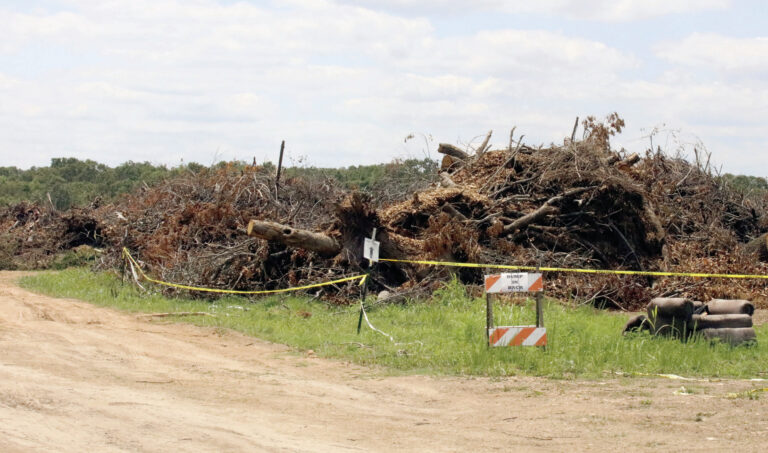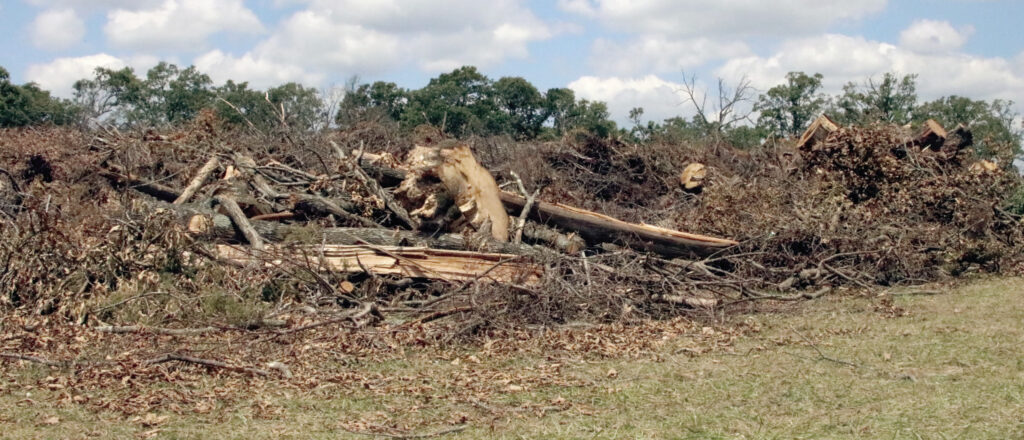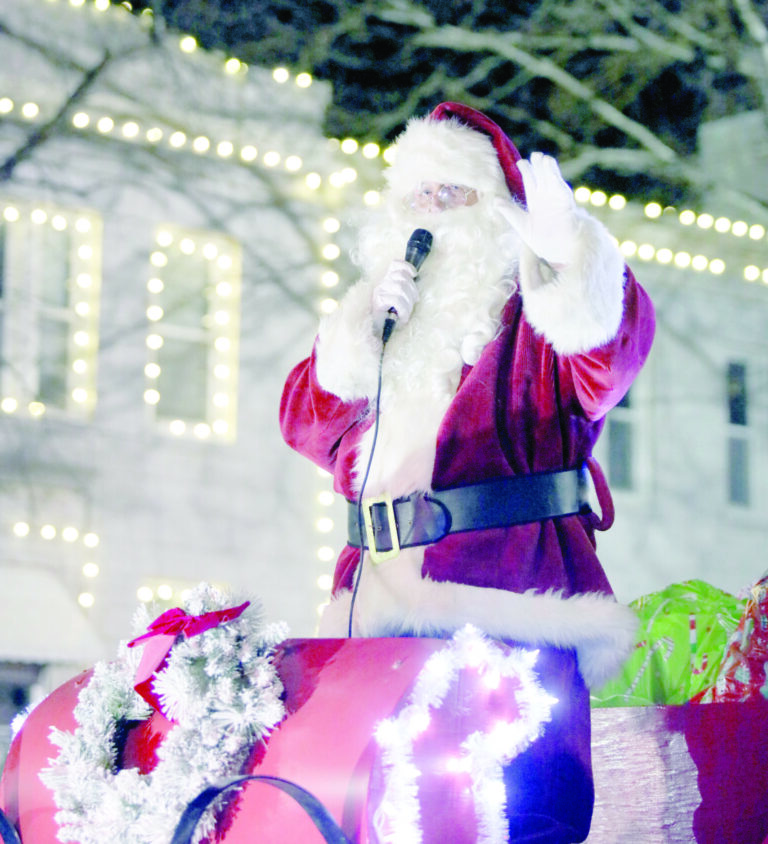City amasses 20K cubic yards of storm debris


BY KYLE TROUTMAN [email protected]
West of the Cassville airport, a visual reminder of the power of Mother Nature is piled high, and the city is trying to determine how to deal with it.
At a special debris collection site, David Brock, Cassville public works administrator, said the pile of trees and limbs is about 20,000 cubic feet, and he expects another 5,000 to 10,000 cubic feet is still sitting on private property in the Cassville area.
“At some point, we have to evaluate the cost of removal, and we encourage everyone to get any remaining storm damage limbs and branches to the site,” said Richard Asbill, Cassville city administrator. “Some people recovered right away, and others are still working on it. We know a lot still needs to be taken to the debris site.”
Asbill said the city is working with the county to assess costs and finalize numbers for a disaster designation, which may help stem recovery costs. An early estimate for 20,000-cubic-foot pile into landscaping mulch would cost Cassville about $85,000 “We have proposed to council we’d like to be done collecting debris by the end of August,” Asbill said. “It’s important for people to know that is the window, and the yard waste area at the Aquatic Center may have restrictions because we can’t take large storm debris there.”
Brock said the yard waste area at South Park is too small to be able to handle large limbs or trees. Smaller brush at the site, which is currently closed, is typically burned — but not during the summer.
“We have a wood chipper, but the standard practice is to burn it,” he said. “But, we don’t like to do it during the summer because people are using the park and the pool, and smoke gets up and out of the way bet- ter in cooler temperatures.”
How the city will handle the debris by the airport will be determined by the disaster declaration and if the city will receive any assistance, but the current plan is to turn it into landscaping mulch, which the city will use on its properties or allow residents to use.
Brock added the amount of debris is also higher because the city has served a larger area than just its limits.
“We’re serving a large part of Barry County as a drop-off point,” he said. “It hasn’t been a repository just for the city of Cassville, but for the whole area.”





